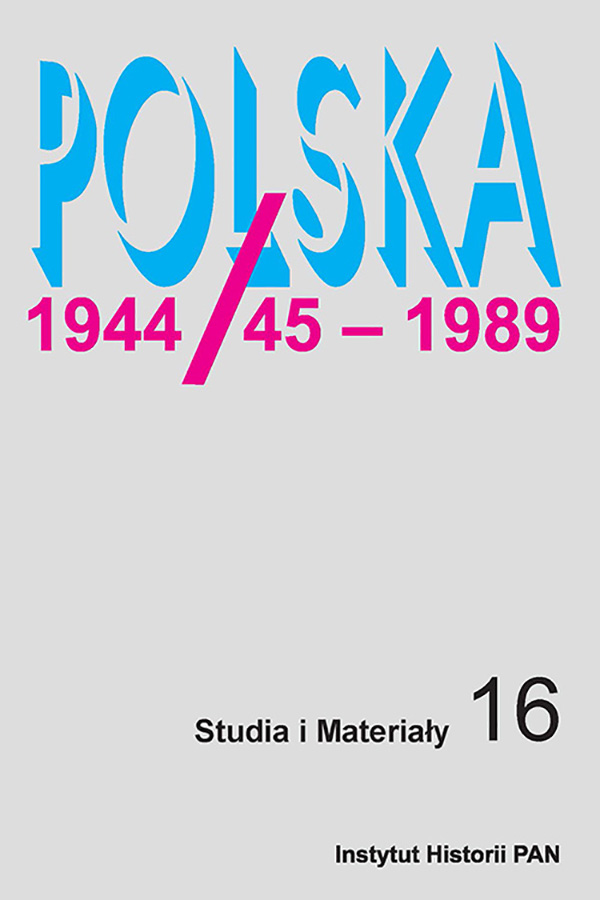Historia walki na dwa fronty. Władza – prasa – dziennikarze 1953–1955/1956
History of a two-front fight. The authorities – the press – journalists 1953–55/56
Author(s): Paweł SasankaSubject(s): History, Political history, Social history, Recent History (1900 till today), Post-War period (1950 - 1989)
Published by: Instytut Historii im. Tadeusza Manteuffla Polskiej Akademii Nauk
Keywords: press; journalists; propaganda; press policy; “The Thaw” in Poland; Poland 1953– 1955/56; October 1956; crisis; communism;
Summary/Abstract: The main purpose of the article is to analyse the press policy conducted by the communist party and the relationship between the authorities and journalists in 1953– 55/56 against the background of political and cultural changes in Poland. The analysis is based on the broad research in archives and press releases as well as literature on the subject; the subject is presented both from the national and local perspective. In the first phase of changes after Stalin’s death the press policy of the Polish United Workers’ Party (PUWP) was a result of more pragmatic line set by the Soviet Union in the communist block after 1953. When, at the end of 1954, the Thaw in Poland found its own dynamic, a growing discrepancy in the Party’s elite and incoherent policy contributed to the expanding margin of freedom of journalists, especially in the capital city of Warsaw. The press policy of the PUWP was the fruit of difference of opinion between the Party’s leaders, the Political Bureau, and the Secretariat of the Central Committee. The Political Bureau was slamming the brakes. For the first time in April 1955, when in a letter to the central committees of voivodeships and districts they in fact reinterpreted the decisions of the post-Thaw Third Plenum of the Central Committee. For the second time, when at the end of 1955 they criticised the Trybuna Ludu (People’s Tribune) daily and Nowe Drogi (New Ways) monthly, and undertook a failed attempt to launch an ideological offensive. Jerzy Morawski, who was put in charge on behalf of the Central Committee Secretariat, represented this part of the Party’s elite who supported cautious changes and encouraged the press to criticize economic and social pathologies, regarding it as a necessary safety valve. An analysis of Morawski’s statements reveals that, in general, he supported the press in a role of critical observer. In January 1956 the Central Committee secretary explicitly distances himself from recent decisions of the Political Bureau on the Trybuna Ludu and presented himself as the advocate of liberalisation. Ambiguous signals from the centre of power fomented unrest and frustration of the journalist circles in Warsaw, who at the turn of 1956 in their large part rebelled against the model of press seen as a tool of party propaganda. On the other hand, however, signals sent from the centre exerted pressure and were resented by the central and local structures of the Stalinist party-state apparatus. Under these unstable circumstances the explosion was triggered by Moscow, where the 20th Congress of the Communist Party of the Soviet Union was beginning.
Journal: Polska 1944/45 - 1989
- Issue Year: 2018
- Issue No: 16
- Page Range: 85-137
- Page Count: 53
- Language: Polish

